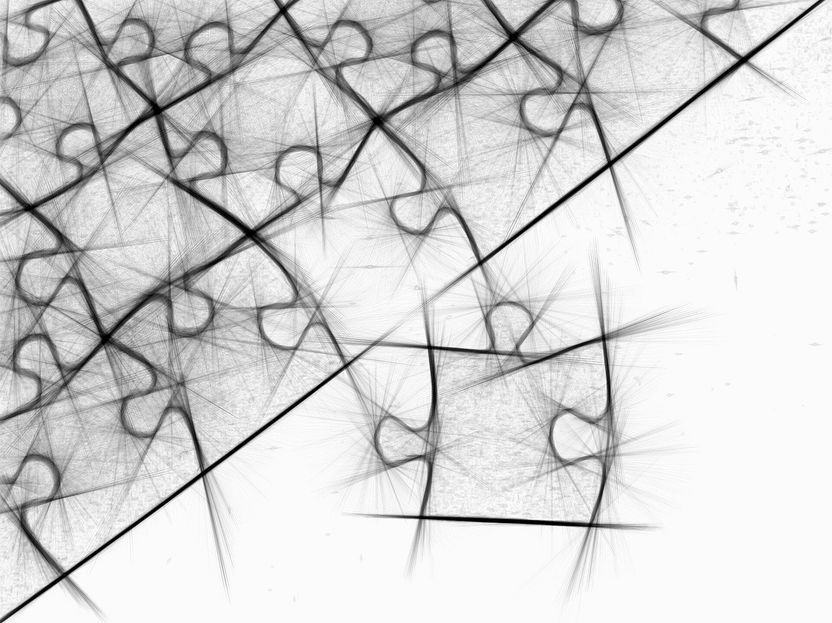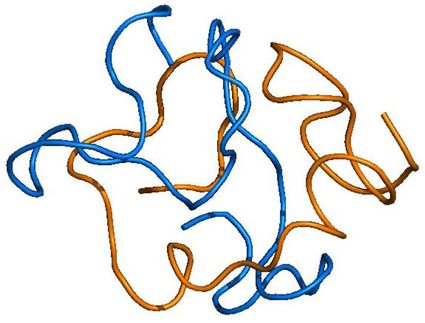Transmissibility of Alzheimer’s: No clinical symptoms
MedUni Vienna researchers have published the results of a clarifying research study on the potential transmissibility of Alzheimer’s disease. Although the protein associated with Alzheimer’s disease, amyloid-β, might be transmissible under very unusual circumstances, this does not go along with a transmission of the clinical manifestation of Alzheimer’s disease. The affected persons develop no clinical symptoms of the disease.

Alexas_Fotos, pixabay.com, CC0
Deposits of amyloid-β together with the tau protein in the brain constitute a distinctive biomarker of Alzheimer’s disease. In the last months, researchers from the UK and a research team from Switzerland and Austria attracted attention by stating that the amyloid-β protein might be transmitted to healthy persons in the context of medical procedures such as brain surgery. They examined the brain tissue of deceased persons who had received human growth hormone or dura mater transplants. This raised fears that the protein might be able to transmit the disease.
The research group of Gabor G. Kovacs of the Institute of Neurology of MedUni Vienna could now for the first time microscopically examine and compare archived dura mater (the thick membrane covering of the brain) of donors. The results confirm that amyloid-β is transmissible from the dura mater to another brain. However, the microscopic appearance of the amyloid-β deposits differs from the usual appearance in Alzheimer’s disease.
The amyloid-β protein remains in the vicinity of the operated tissue and does not spread considerably or affect other brain regions. There were also no clinical symptoms of Alzheimer’s disease and no characteristic deposits of the tau protein were seen.
To determine if amyloid-β deposits can be found in the dura mater, the research group also examined the dura mater of elderly individuals. In this context, the researchers demonstrated for the first time that amyloid-β can also be stored by the dura mater. This was previously only known for cerebral tissue.
“The study allows us to obtain a balanced opinion of the transmissibility of Alzheimer’s disease”, explained the principal investigator of the research study, Gabor G. Kovacs. “Despite the fact that it looks as if amyloid-β, the protein associated with Alzheimer’s, might be transmissible under very unusual circumstances, the clinical manifestation of Alzheimer’s disease is not transmitted. It is certainly not correct to talk of a transmissibility of the disease.”
The group of researchers is composed of members of the Institute of Neurology of MedUni Vienna and Donauspital.
Original publication
Most read news
Original publication
Gabor G. Kovacs, Mirjam I. Lutz, Gerda Ricken, Thomas Ströbel, Romana Höftberger, Matthias Preusser, Günther Regelsberger, Selma Hönigschnabl, Angelika Reiner, Peter Fischer, Herbert Budka, Johannes A. Hainfellner; "Dura mater is a potential source of Aβ seeds"; Acta Neuropathologica
Organizations
Other news from the department science

Get the life science industry in your inbox
By submitting this form you agree that LUMITOS AG will send you the newsletter(s) selected above by email. Your data will not be passed on to third parties. Your data will be stored and processed in accordance with our data protection regulations. LUMITOS may contact you by email for the purpose of advertising or market and opinion surveys. You can revoke your consent at any time without giving reasons to LUMITOS AG, Ernst-Augustin-Str. 2, 12489 Berlin, Germany or by e-mail at revoke@lumitos.com with effect for the future. In addition, each email contains a link to unsubscribe from the corresponding newsletter.





















































